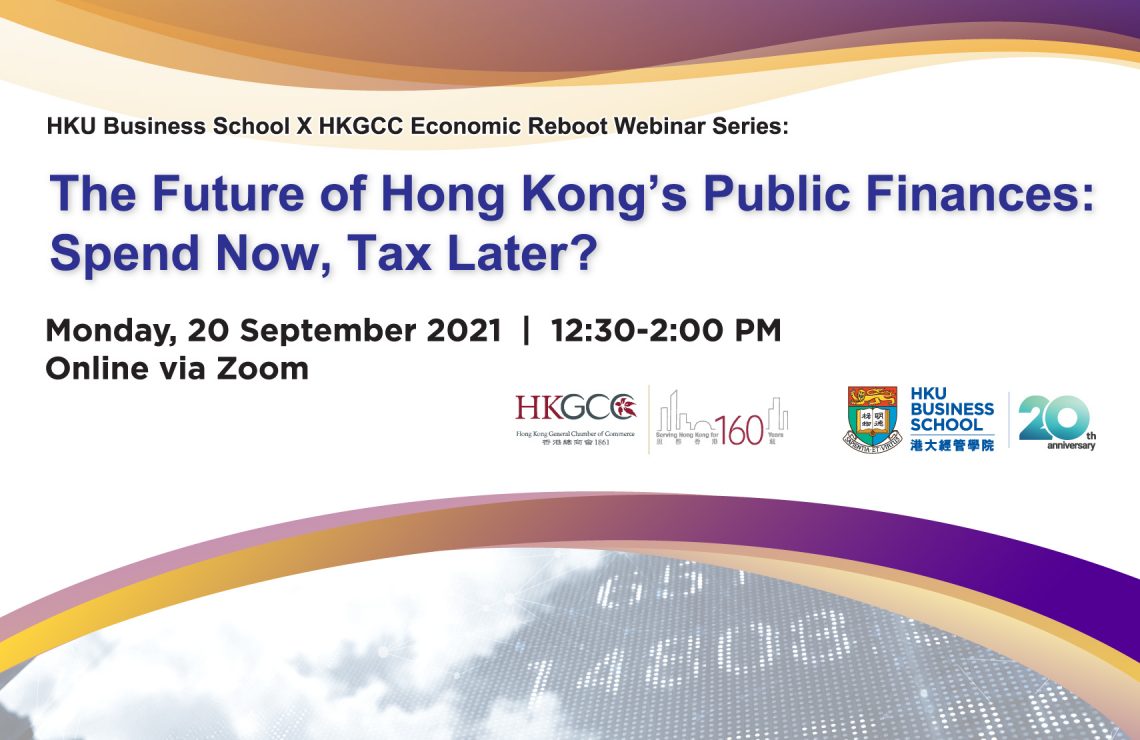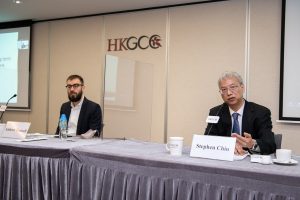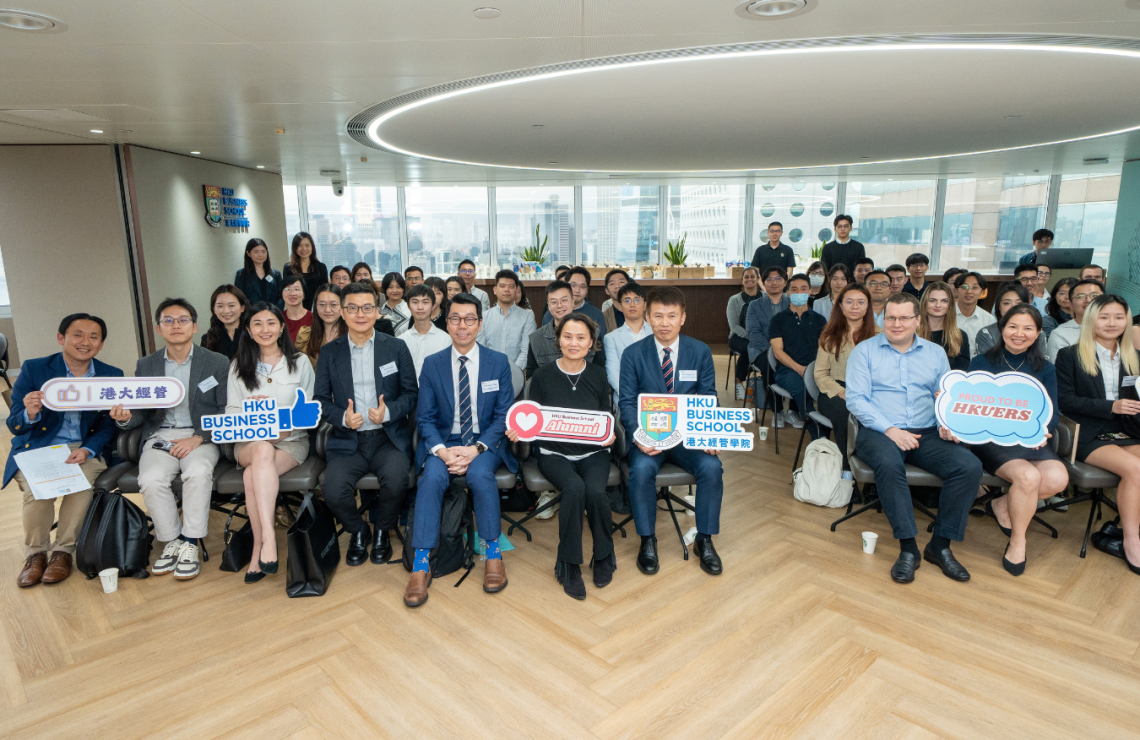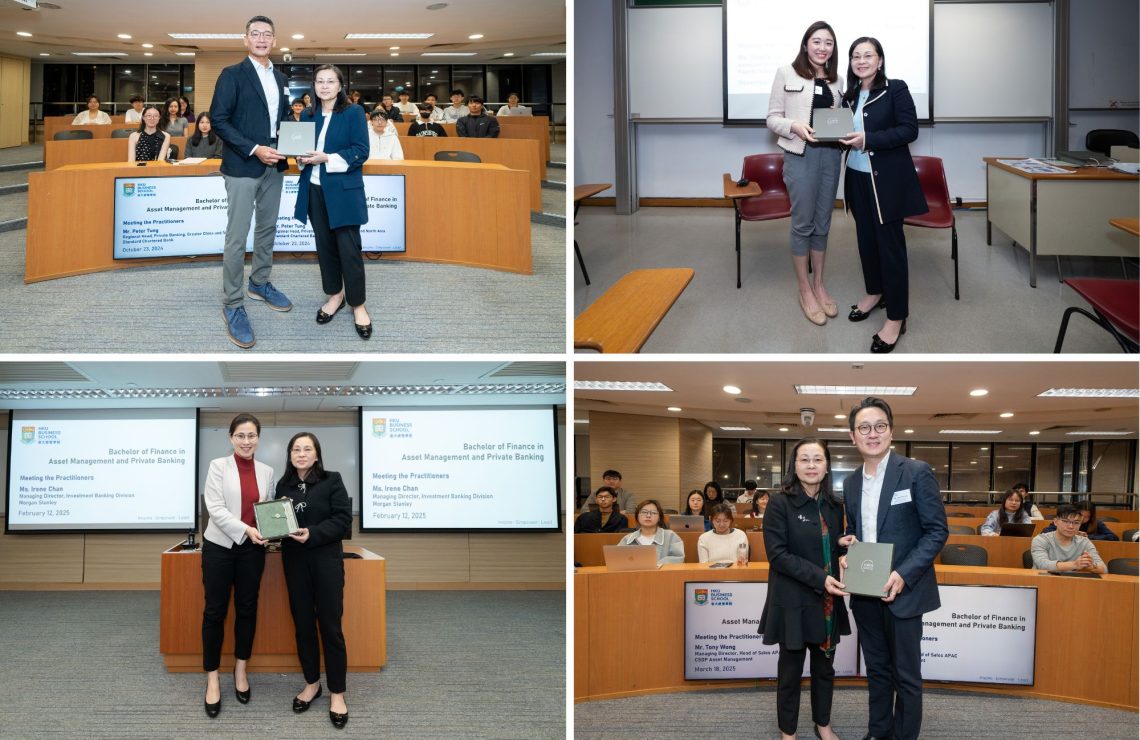
In Need of Tax Reform? The Third HKU Business School x HKGCC Webinar Discusses Over the Fiscal Sustainability of the Current Tax System

The low and simple tax system has been one of the key elements contributing to the success of Hong Kong’s economy as an international financial hub. However, in view of future economic uncertainties and global tax revamp, some have raised concerns over the fiscal outlook of the city.
Themed “The Future of Hong Kong’s Public Finances: Spend Now, Tax Later?”, the third HKU Business School x HKGCC webinar was successfully held on September 20, 2021 to gauge views from business experts and scholars and debate over whether an overhaul is needed in response to the external environment and underlying flaws of our current tax structure. The thought-provoking session was led by Dr. Stephen Chiu, Associate Professor in Economics at HKU Business School and Mr. Andrew Fennell, Lead Analyst for China and Hong Kong at Fitch Ratings, and moderated by Mr. Tong Miller, Chairman of the HKGCC Economic Policy Committee.
The webinar started off with Mr. Fennell’s in-depth analysis on the city’s economic performance and government finances. Despite Hong Kong’s economy was heavily struck by the pandemic, he evaluated that it will rebound this year because of global trade cycle and gradual economic recovery. Furthermore, he highlighted the important role that our fiscal reserves have played as a buffer in minimising the impacts on businesses and citizens. However, he suggested that the pandemic has revealed the fragility of the city’s finances as there was more severe fiscal deterioration when compared to other cities.
Such a view was also shared by Dr. Chiu as he doubts on the fiscal sustainability of the current model, especially with its narrow tax base. He contended that instead of striving to maintain a balanced budget, we should be more forward looking by considering the long-term sustainability, or else we will be facing a structural fiscal deficit in the coming years. Drawing from Singapore’s model in reserves management, he recommended adopting a bold “Borrow-to-Invest” strategy to build a more robust financial portfolio. New institutions and mechanisms could be established to drive a higher rate of return out of the reserves. He further explained that the current investment return of our exchange fund has been declining and is way lower than other sovereign funds. Therefore, his proposition could take advantage of the sizable reserves at hand and reinforce the fiscal strength of the city.
The seminar came to an end with a stimulating Q&A session. There were insightful exchanges on the feasibility of Dr. Chiu’s idea and alternatives in raising fiscal revenue. Both speakers stressed that there will be trade-offs if we are transforming our ways in managing our public finances. Therefore, we look forward to discussions and debates on related topics among experts and business leaders in the society.







